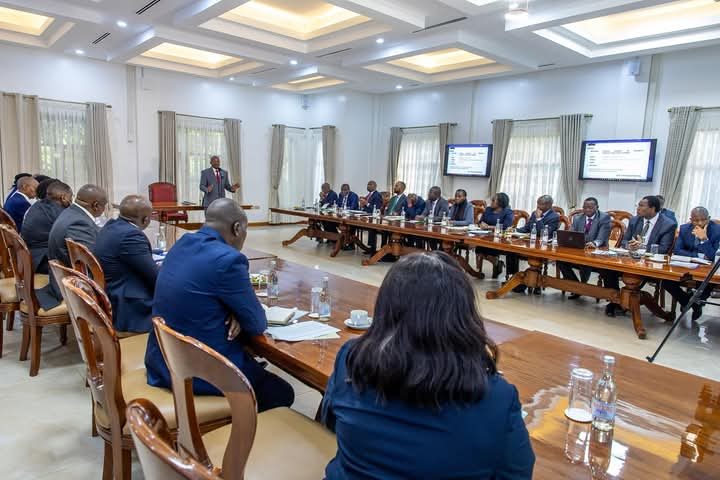By Cege Wa Mahiga
This morning, Principal Secretary for Agriculture, Dr. Kipronoh Ronoh Paul, CBS, joined Deputy President Prof. Kithure Kindiki at his Karen residence for yet another high-level meeting aimed at reviewing the status of Kenya’s agricultural transformation under the Bottom-Up Economic Transformation Agenda (BETA). While the optics were impressive and the statements polished, beneath the rhetoric lies a disturbing truth: Kenya’s agricultural future remains shackled by inadequate funding, bureaucratic inertia, and a widening gap between promise and delivery.
Talk Is Cheap, So Is the Investment
Despite persistent proclamations about revitalizing Kenya’s agriculture—especially value chains like tea, coffee, rice, sugar, and dairy—the financial commitment remains negligible. The truth is hard to ignore: with massive budget cuts, including a KSh 13 billion slash to the State Department for Agriculture in 2024/25, it is clear that agriculture is not a top priority. In contrast, funds continue to flow to politically motivated projects, such as refurbishments of state residences, revealing a distorted set of national priorities.
Kenya Kwanza’s BETA blueprint projected an investment need of KSh 2.67 trillion over five years. With the government facing a KSh 346 billion budget cut amid fiscal strain and unrest, one cannot help but question—was this ever a serious plan or just campaign poetry?
What Farmers Are Getting: Hope and Hustler Rhetoric
The meeting emphasized investments in infrastructure, digital connectivity, and value addition, but for farmers on the ground, it’s business as usual—poor roads, erratic electricity, and rain-fed farming that remains at the mercy of the changing climate. The so-called “Hustler Fund” has become a cruel joke, disbursing as little as KSh 500 per applicant—a sum too small to buy a single bag of fertilizer, let alone transform a farm.
Meanwhile, the backbone of Kenyan agriculture—smallholder farmers—continue to struggle with high input costs, limited access to extension services, and post-harvest losses. No amount of PowerPoint presentations in Nairobi can change the reality in Kajiado, Bungoma, Meru, or Turkana. Without irrigation, mechanization, and access to markets, “transformation” remains a mirage.
Waiting for Government? Wait for Doom.
If there is any hope for Kenya’s food systems, it lies not in government boardrooms but in the hands of farmers themselves. Their resilience, innovation, and networks have sustained the sector for decades despite chronic neglect. Farmers are building cooperatives, experimenting with climate-smart farming, and hustling their way to productivity. It is their courage, not government commitment, that offers any real hope for food security.
To suggest that BETA is on track is to insult the intelligence of millions of Kenyans. Unless there is a miracle—or a radical shift in budget allocations and political will—the dream of agricultural transformation will be reduced to yet another footnote in Kenya’s long history of broken development promises.
Small Light, Long Tunnel
Credit where it’s due—there are a few signs of progress. The African Development Bank and Mastercard’s MADE Alliance promises to increase access to digital finance for farmers. New bills before Parliament could reform extension services and strengthen oversight of key value chains. And projects like the Sh2.6 billion Shimoni Fish Port offer a glimpse into a diversified agricultural future.
But these isolated wins are not enough. They do not compensate for systemic failure or inspire confidence in a government that appears more committed to speeches than seeds, and more focused on press briefings than ploughs.
Conclusion: From BETA to Better?
Until the government backs its words with meaningful financial investment and policy enforcement, Kenyan farmers will continue to fend for themselves. If Kenya’s leadership cannot prioritize the sector that feeds the nation and employs the majority, then perhaps it is time for a farmer-led revolution—from the ground up.
The sad truth? It is easier to find a press conference on agriculture than a functioning irrigation pump in a Kenyan village. For now, BETA remains a slogan, not a solution.
#BetaKilimo #DeliveringThePlan #GroundTruthFarming
